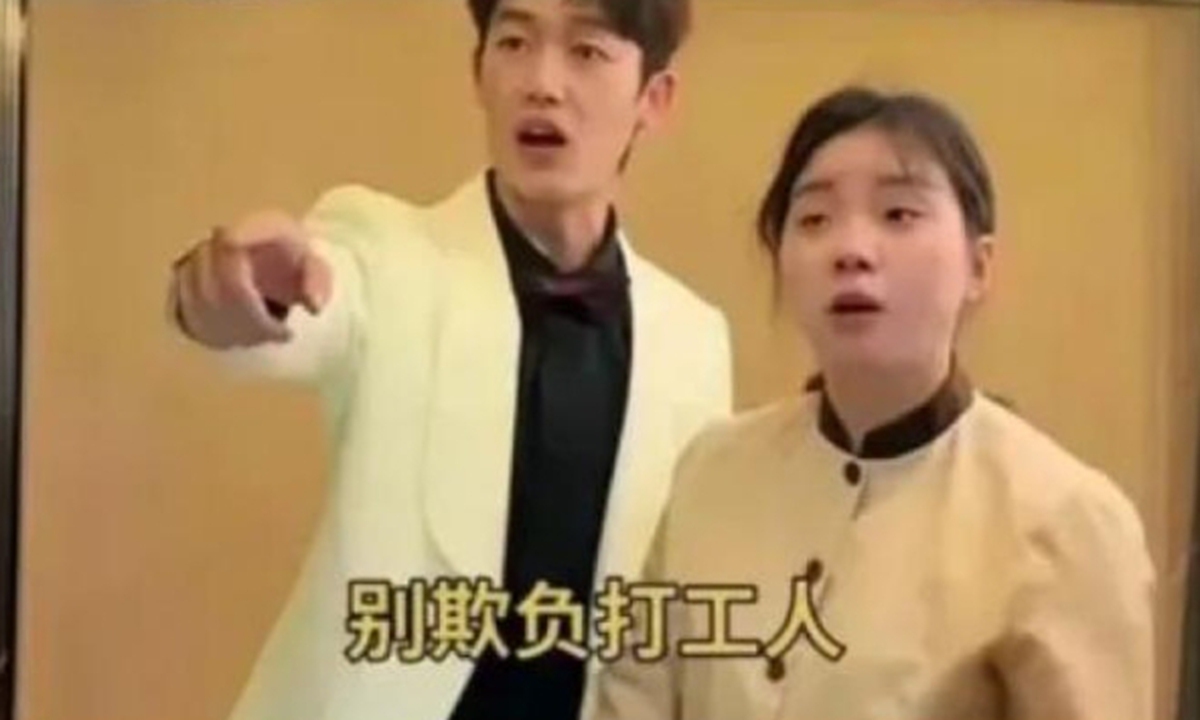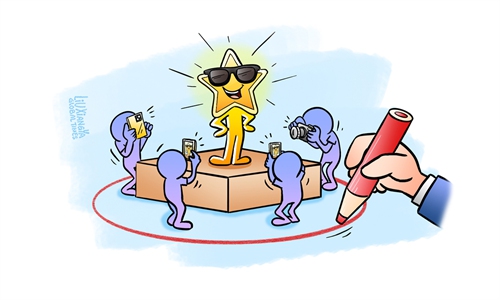ARTS / CULTURE & LEISURE
Studio behind short drama on ‘aloof CEOs’ found treating staff poorly

Snapshot of the Chinese micro-drama Photo: Douyin, Chinese version of TikTok
A Chinese internet sensation known as "Wang Ma," hailed as the voice of the workers in a hit micro-drama, has unexpectedly fallen from grace in a dramatic turn of events.Micro-dramas, typically played on mini-programs or social media platforms, are brief, lasting only a few minutes per episode and often ending with a cliffhanger or twist. This industry has seen a surge in development in China over the past year.
In the micro-drama that can be translated as "Rebirth: I became a nanny in the house of an overbearing CEO," the character Wang Ma is a nanny in the household of a CEO couple.
The character, enduring mistreatment with a side of sarcasm and standing up for herself when principles are at stake, resonated strongly with many working-class individuals, garnering millions of followers.
However, revelations about the drama's cultural media company sparked outrage after media reported that the company offered "minimal benefits" to the staff, including controversial low pay and suspected not paying social insurance while requiring lots of overtime and asking staff to bring their personal computers to work. Chinese netizens denounced these conditions as "miserly" on Sina Weibo.
Despite the company later issuing a response to the controversy saying that it has taken measures including abolishing the unequal work schedule and improving employee benefits, the "betrayal of the working class" has yet to be forgiven by most netizens.
The reason this incident sparked such widespread controversy and condemnation online is because Wang Ma's persona is that of a working-class advocate.
It was the empathy and support of the masses that propelled the media company behind Wang Ma to gain significant streaming and economic benefits.
While Wang Ma voiced the concerns of the workers in the micro-drama and gained fame as a result, the company exploited workers in reality. This reflects a lack of genuine understanding and empathy for the real struggles of the workers.
Instead of exploiting themes for popularity, their team should prioritize upholding the rights of employees both on and off-screen. Moreover, after gaining popularity, the company should stay true to their initial intentions.
A staff member involved in the production of micro-dramas told the Global Times that the quality of micro-drama production in China varies greatly. Many production teams, in order to meet deadlines and save costs, churn out micro-dramas within a week. The current controversy is not surprising and it shows that value-oriented micro-dramas require a healthier development both on and off screen.
New internet celebrities emerge almost daily on various social platforms, often by accurately tapping into social sentiments and serving as mouthpieces for certain groups.
If traditional film and television productions derive value from their plots, micro-dramas prioritize themes and values. By choosing the "ranting against the boss" track, works like the one about Wang Ma follow a similar playbook.
While these "value-oriented short dramas" resonate well with target audiences and provide instant gratification, they also bind creators and actors to specific value systems, leading to higher expectations from fans.
From humble beginnings as independent content creators to running a corporate operation, companies like the studio behind the Wang Ma show should be keenly aware of the journey. Thus, they should uphold the right values, ethical business practices, and a sense of social responsibility.
If they repeatedly criticize "aloof CEOs" in their scripts, they should also learn to actually respect working-class individuals striving for a livelihood, rather than treating empathy as a mere business strategy.
The author is a reporter with the Global Times. life@globaltimes.com.cn




